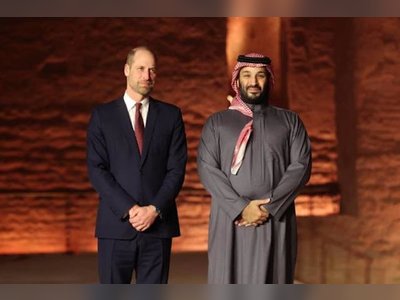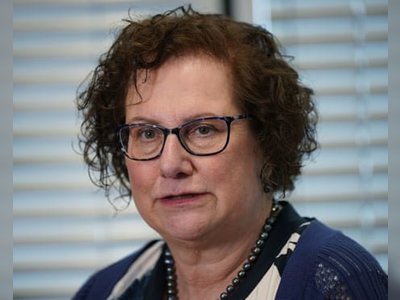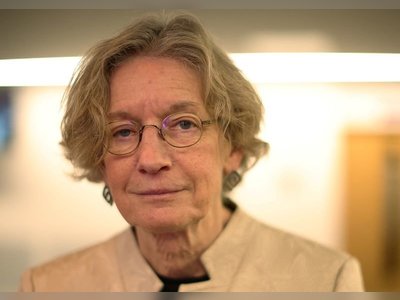
Princeton professors lead new alliance for free speech
The Academic Freedom Alliance (AFA), a nonprofit organization “dedicated to upholding the principle of free speech in academia,” was launched on Mar. 8. Several Princeton faculty members are in its ranks of membership and leadership.
At the helm of the organization as Academic Committee Chair is Keith E. Whittington, a politics professor and author of the Class of 2022 pre-read “Speak Freely.” Also serving on the academic committee are philosophy professor Lara Buchak, James Madison Program Director and politics professor Robert P. George, and electrical and computer engineering professor Alejandro Rodriguez.
In an interview with The Daily Princetonian, Whittington said the AFA is “committed to providing defense to members of the organization if they find themselves in a free speech or academic freedom controversy.” The group has already secured millions in funding, according to reporting from The Chronicle of Higher Education.
The membership consists of over 200 members from various universities across the nation, including 26 current or former University faculty members from a range of disciplines.
Prominent University affiliated members include bioethics professor Peter Singer and Professor Emeritus Cornel West GS ’80. The group’s membership also includes classics professor Joshua Katz, who is currently suing the American Council of Learned Societies (ACLS) for “viewpoint discrimination.”
Whittington said that the organization was originally intended to be much smaller, with only a few dozen members from select universities.
“We realized that there was a lot of interest,” he explained, “and a willingness to join and support [the organization].”
Both Whittington and the organization’s homepage emphasize that the AFA does not exist to serve only one type of professor.
According to their website, AFA “members from across the political spectrum recognize that an attack on academic freedom anywhere is an attack on academic freedom everywhere.”
The AFA consists of three primary groups: the academic committee, the organization’s decision-making body; the legal advisory counsel, a team of lawyers and various counsellors dedicated to supporting members; and the senior staff, who direct the organization.
Betsy Kulkarni is a member of the senior staff, acting as the director of academic affairs. For a decade, Kulkarni previously served as the program manager for the James Madison Program in American Ideals and Institutions in the politics department.
The goals for the AFA are to protect academic freedom as outlined in a 1940 address made by the American Association of University Professors.
The statement outlines three components of academic freedom: the protection of performing research and publishing its results, the protection of teaching within the classroom, and the protection of free speech outside of the classroom — in any public forum.
Several other members of the Princeton community were integral in the formation of the AFA, according to Whittington. For example, Whittington noted, Professor of Physics Shivaji Sondhi “came up with the idea to have a legal defense fund.”
Whittington also acknowledged George’s work in helping the group stay organized and Brandice Canes-Wrone ’93, Professor of Politics and Public and International Affairs, as being “so helpful in recruitment.”
Mathematics professor Sergiu Klainerman, who has outspokenly opposed rhetoric about systemic racism from within and beyond the University, “proposed the adoption of the Chicago Statement and was involved in early conversations,” according to Whittington.
At Princeton, Whittington said he believes the administration protects a healthy environment for academic freedom.
“President Eisgruber has been unusually vocal in his defense of these principles,” he said. “Most university presidents prefer not to talk about these issues.”
Amid conversations surrounding free speech on campus last summer, President Christopher Eisgruber ’83 published an op-ed in the ‘Prince,’ where he wrote that universities must “remain steadfastly devoted to both free speech and inclusivity.”
“Princeton has a strong policy protecting free speech,“ he continued. “It applies very broadly, encompassing academic inquiry, peaceful protest, ordinary conversation, and online discussion. The University permits speech that is unpopular, provocative, controversial, wrong, or even deeply offensive.”
In his annual State of the University letter, Eisgruber emphasized that recklessly expressing offensive or false ideas is “utterly inconsistent with scholarly ideals,” but continued to advocate for meeting falsehoods “with better speech, not with censorship, suppression, or punishment.”
Whittington also mentioned that the adoption of a portion of the Chicago Statement into “Rights, Rules, Responsibilities” in April 2015 supplemented the academic freedom on campus significantly.
According to the University website, the statement’s inclusion was intended to affirm “the University’s commitment to the principles of academic freedom and freedom of expression as essential to the University’s educational mission.”










